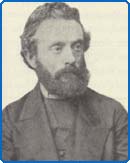
Death Anniversary of William Norwood Potter, (27-viii-1840 13-iii-1895)
We remember Reverend John Owen who passed away on the 24th November 1901)
John Owen was born on April 8th, 1827 to John and Sarah Owen in Marchington, Uttoxeter, Staffordshire.
He was baptised at Marchington, St. Peter on April 9th, 1827 by H. Bennett and their residence was recorded as “Brook House”. His father is recorded as being a gentleman.
From The Oxford Companion to Chess (OUP, 1984) by Hooper & Whyld :
“English player, vicar of Hooten, Cheshire, from 1862 to 1900. In 1858, playing under the pseudonym ‘Alter’, he lost (=2-5) a match against Morphy, who conceded pawn and a move. (Hoffer attributed this poor result to Owen’s just being married.) Subsequently Owen played better. He drew a match with Kolisch in 1860 (+4-4) and at the London tournament of 1862 took third prize after Andersen (whom he defeated) and L. Paulsen ahead of Dubois, GA MacDonnell, Steinitz and Blackburne.
From 1857 to 1898 Owen played in more than a dozen tournaments, all of them in Great Britain.
He liked close openings and often played the Queen’s Fianchetto Defence, sometimes named after him, and the Larsen Opening.”
From The Encyclopedia of Chess (Batsford, 1977), Harry Golombek OBE :
Probably, the strongest of all the chess-playing reverends of the nineteenth century. Owen came 3rd at Birmingham 1858, below Löwenthal and Falkbeer, but ahead of Saint-Amant, Staunton and Bird; but is should be pointed out that the method of play was still by the old knock-out system.
He was also =3rd with MacDonnell in the first congress of the British Chess Association at London in 1862.
He also had the distinction of losing matches to Morphy, Zukertort and Burn, though he beat Burn in a later match. He drew a match with Kolisch in 1860.
Sunnucks is silent on Owen.
According to The Complete Chess Addict (Faber&Faber, 1987), Mike Fox & Richard James :
“For the record (and because it’s so impressive) here is the most devout team of all time, If there is anything in the efficacy of prayer they’d be tough to stop :
A much fuller biography may be found at the excellent Yorkshire Chess History web site
From Wikipedia :
“John Owen (8 April 1827 – 24 November 1901) was an English vicar and strong amateur chess master. He ranked among the world’s top ten chess players for certain periods of the 1860s. He was a major figure in English chess from the mid 1850s to the 1890s.
Owen was born in Marchington, and obtained his early schooling at Repton School, Derbyshire. In 1850 he graduated from Trinity College, Cambridge, and received his M.A. from Cambridge three years later. He was ordained by the Church of England in 1851, and served as Vicar of Hooton, Cheshire from 1862 to his retirement in 1900.
In 1858 he won a chess game against the young American master Paul Morphy, the world’s best player, who was then touring Europe. ”
This led to a match between the two. Despite being given odds of pawn and the move (meaning he started the game with an extra pawn and always moved first), Owen lost the match 6–1, never winning a game.
His performance in the very strong 1862 London tournament, the first international round-robin event (in which each participant plays every other) was more impressive. He finished third, ahead of future world champion Wilhelm Steinitz, and was the only player to win against the eventual tournament winner, Adolf Anderssen. Louis Paulsen placed second. This result was arguably Owen’s top lifetime chess achievement.
Owen continued to play frequently and often successfully in British tournaments into the 1890s, and performed strongly in several matches against top British players, who were essentially chess professionals. He never competed outside the British Isles. He died in Twickenham.
Owen is the eponym of Owen’s Defence, a chess opening characterised by the moves 1.e4 b6. Owen was the first strong player to play this frequently, including in his victory over Morphy.”
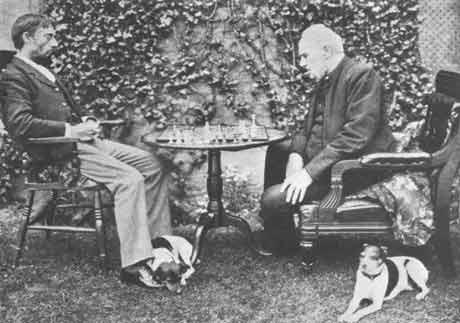
We remember Reverend John Owen who passed away on the 24th November 1901)
John Owen was born on April 8th, 1827 to John and Sarah Owen in Marchington, Uttoxeter, Staffordshire.
He was baptised at Marchington, St. Peter on April 9th, 1827 by H. Bennett and their residence was recorded as “Brook House”. His father is recorded as being a gentleman.
From The Oxford Companion to Chess (OUP, 1984) by Hooper & Whyld :
“English player, vicar of Hooten, Cheshire, from 1862 to 1900. In 1858, playing under the pseudonym ‘Alter’, he lost (=2-5) a match against Morphy, who conceded pawn and a move. (Hoffer attributed this poor result to Owen’s just being married.) Subsequently Owen played better. He drew a match with Kolisch in 1860 (+4-4) and at the London tournament of 1862 took third prize after Andersen (whom he defeated) and L. Paulsen ahead of Dubois, GA MacDonnell, Steinitz and Blackburne.
From 1857 to 1898 Owen played in more than a dozen tournaments, all of them in Great Britain.
He liked close openings and often played the Queen’s Fianchetto Defence, sometimes named after him, and the Larsen Opening.”
From The Encyclopedia of Chess (Batsford, 1977), Harry Golombek OBE :
Probably, the strongest of all the chess-playing reverends of the nineteenth century. Owen came 3rd at Birmingham 1858, below Löwenthal and Falkbeer, but ahead of Saint-Amant, Staunton and Bird; but is should be pointed out that the method of play was still by the old knock-out system.
He was also =3rd with MacDonnell in the first congress of the British Chess Association at London in 1862.
He also had the distinction of losing matches to Morphy, Zukertort and Burn, though he beat Burn in a later match. He drew a match with Kolisch in 1860.
Sunnucks is silent on Owen.
According to The Complete Chess Addict (Faber&Faber, 1987), Mike Fox & Richard James :
“For the record (and because it’s so impressive) here is the most devout team of all time, If there is anything in the efficacy of prayer they’d be tough to stop :
A much fuller biography may be found at the excellent Yorkshire Chess History web site
From Wikipedia :
“John Owen (8 April 1827 – 24 November 1901) was an English vicar and strong amateur chess master. He ranked among the world’s top ten chess players for certain periods of the 1860s. He was a major figure in English chess from the mid 1850s to the 1890s.
Owen was born in Marchington, and obtained his early schooling at Repton School, Derbyshire. In 1850 he graduated from Trinity College, Cambridge, and received his M.A. from Cambridge three years later. He was ordained by the Church of England in 1851, and served as Vicar of Hooton, Cheshire from 1862 to his retirement in 1900.
In 1858 he won a chess game against the young American master Paul Morphy, the world’s best player, who was then touring Europe. ”
This led to a match between the two. Despite being given odds of pawn and the move (meaning he started the game with an extra pawn and always moved first), Owen lost the match 6–1, never winning a game.
His performance in the very strong 1862 London tournament, the first international round-robin event (in which each participant plays every other) was more impressive. He finished third, ahead of future world champion Wilhelm Steinitz, and was the only player to win against the eventual tournament winner, Adolf Anderssen. Louis Paulsen placed second. This result was arguably Owen’s top lifetime chess achievement.
Owen continued to play frequently and often successfully in British tournaments into the 1890s, and performed strongly in several matches against top British players, who were essentially chess professionals. He never competed outside the British Isles. He died in Twickenham.
Owen is the eponym of Owen’s Defence, a chess opening characterised by the moves 1.e4 b6. Owen was the first strong player to play this frequently, including in his victory over Morphy.”

We remember Reverend John Owen who passed away on the 24th November 1901)
John Owen was born on April 8th, 1827 to John and Sarah Owen in Marchington, Uttoxeter, Staffordshire.
He was baptised at Marchington, St. Peter on April 9th, 1827 by H. Bennett and their residence was recorded as “Brook House”. His father is recorded as being a gentleman.
From The Oxford Companion to Chess (OUP, 1984) by Hooper & Whyld :
“English player, vicar of Hooten, Cheshire, from 1862 to 1900. In 1858, playing under the pseudonym ‘Alter’, he lost (=2-5) a match against Morphy, who conceded pawn and a move. (Hoffer attributed this poor result to Owen’s just being married.) Subsequently Owen played better. He drew a match with Kolisch in 1860 (+4-4) and at the London tournament of 1862 took third prize after Andersen (whom he defeated) and L. Paulsen ahead of Dubois, GA MacDonnell, Steinitz and Blackburne.
From 1857 to 1898 Owen played in more than a dozen tournaments, all of them in Great Britain.
He liked close openings and often played the Queen’s Fianchetto Defence, sometimes named after him, and the Larsen Opening.”
From The Encyclopedia of Chess (Batsford, 1977), Harry Golombek OBE :
Probably, the strongest of all the chess-playing reverends of the nineteenth century. Owen came 3rd at Birmingham 1858, below Löwenthal and Falkbeer, but ahead of Saint-Amant, Staunton and Bird; but is should be pointed out that the method of play was still by the old knock-out system.
He was also =3rd with MacDonnell in the first congress of the British Chess Association at London in 1862.
He also had the distinction of losing matches to Morphy, Zukertort and Burn, though he beat Burn in a later match. He drew a match with Kolisch in 1860.
Sunnucks is silent on Owen.
According to The Complete Chess Addict (Faber&Faber, 1987), Mike Fox & Richard James :
“For the record (and because it’s so impressive) here is the most devout team of all time, If there is anything in the efficacy of prayer they’d be tough to stop :
A much fuller biography may be found at the excellent Yorkshire Chess History web site
From Wikipedia :
“John Owen (8 April 1827 – 24 November 1901) was an English vicar and strong amateur chess master. He ranked among the world’s top ten chess players for certain periods of the 1860s. He was a major figure in English chess from the mid 1850s to the 1890s.
Owen was born in Marchington, and obtained his early schooling at Repton School, Derbyshire. In 1850 he graduated from Trinity College, Cambridge, and received his M.A. from Cambridge three years later. He was ordained by the Church of England in 1851, and served as Vicar of Hooton, Cheshire from 1862 to his retirement in 1900.
In 1858 he won a chess game against the young American master Paul Morphy, the world’s best player, who was then touring Europe. ”
This led to a match between the two. Despite being given odds of pawn and the move (meaning he started the game with an extra pawn and always moved first), Owen lost the match 6–1, never winning a game.
His performance in the very strong 1862 London tournament, the first international round-robin event (in which each participant plays every other) was more impressive. He finished third, ahead of future world champion Wilhelm Steinitz, and was the only player to win against the eventual tournament winner, Adolf Anderssen. Louis Paulsen placed second. This result was arguably Owen’s top lifetime chess achievement.
Owen continued to play frequently and often successfully in British tournaments into the 1890s, and performed strongly in several matches against top British players, who were essentially chess professionals. He never competed outside the British Isles. He died in Twickenham.
Owen is the eponym of Owen’s Defence, a chess opening characterised by the moves 1.e4 b6. Owen was the first strong player to play this frequently, including in his victory over Morphy.”

We remember Reverend John Owen who passed away on the 24th November 1901)
John Owen was born on April 8th, 1827 to John and Sarah Owen in Marchington, Uttoxeter, Staffordshire.
He was baptised at Marchington, St. Peter on April 9th, 1827 by H. Bennett and their residence was recorded as “Brook House”. His father is recorded as being a gentleman.
From The Oxford Companion to Chess (OUP, 1984) by Hooper & Whyld :
“English player, vicar of Hooten, Cheshire, from 1862 to 1900. In 1858, playing under the pseudonym ‘Alter’, he lost (=2-5) a match against Morphy, who conceded pawn and a move. (Hoffer attributed this poor result to Owen’s just being married.) Subsequently Owen played better. He drew a match with Kolisch in 1860 (+4-4) and at the London tournament of 1862 took third prize after Andersen (whom he defeated) and L. Paulsen ahead of Dubois, GA MacDonnell, Steinitz and Blackburne.
From 1857 to 1898 Owen played in more than a dozen tournaments, all of them in Great Britain.
He liked close openings and often played the Queen’s Fianchetto Defence, sometimes named after him, and the Larsen Opening.”
From The Encyclopedia of Chess (Batsford, 1977), Harry Golombek OBE :
Probably, the strongest of all the chess-playing reverends of the nineteenth century. Owen came 3rd at Birmingham 1858, below Löwenthal and Falkbeer, but ahead of Saint-Amant, Staunton and Bird; but is should be pointed out that the method of play was still by the old knock-out system.
He was also =3rd with MacDonnell in the first congress of the British Chess Association at London in 1862.
He also had the distinction of losing matches to Morphy, Zukertort and Burn, though he beat Burn in a later match. He drew a match with Kolisch in 1860.
Sunnucks is silent on Owen.
According to The Complete Chess Addict (Faber&Faber, 1987), Mike Fox & Richard James :
“For the record (and because it’s so impressive) here is the most devout team of all time, If there is anything in the efficacy of prayer they’d be tough to stop :
A much fuller biography may be found at the excellent Yorkshire Chess History web site
From Wikipedia :
“John Owen (8 April 1827 – 24 November 1901) was an English vicar and strong amateur chess master. He ranked among the world’s top ten chess players for certain periods of the 1860s. He was a major figure in English chess from the mid 1850s to the 1890s.
Owen was born in Marchington, and obtained his early schooling at Repton School, Derbyshire. In 1850 he graduated from Trinity College, Cambridge, and received his M.A. from Cambridge three years later. He was ordained by the Church of England in 1851, and served as Vicar of Hooton, Cheshire from 1862 to his retirement in 1900.
In 1858 he won a chess game against the young American master Paul Morphy, the world’s best player, who was then touring Europe. ”
This led to a match between the two. Despite being given odds of pawn and the move (meaning he started the game with an extra pawn and always moved first), Owen lost the match 6–1, never winning a game.
His performance in the very strong 1862 London tournament, the first international round-robin event (in which each participant plays every other) was more impressive. He finished third, ahead of future world champion Wilhelm Steinitz, and was the only player to win against the eventual tournament winner, Adolf Anderssen. Louis Paulsen placed second. This result was arguably Owen’s top lifetime chess achievement.
Owen continued to play frequently and often successfully in British tournaments into the 1890s, and performed strongly in several matches against top British players, who were essentially chess professionals. He never competed outside the British Isles. He died in Twickenham.
Owen is the eponym of Owen’s Defence, a chess opening characterised by the moves 1.e4 b6. Owen was the first strong player to play this frequently, including in his victory over Morphy.”

BCN wishes GM John Nunn Happy Birthday (25-iv-1955)
From The Encyclopaedia of Chess by Harry Golombek :
British International master and European Junior Champion, 1975. Born in London, Nunn learned chess at the age of four and soon revealed a great aptitude for the game.
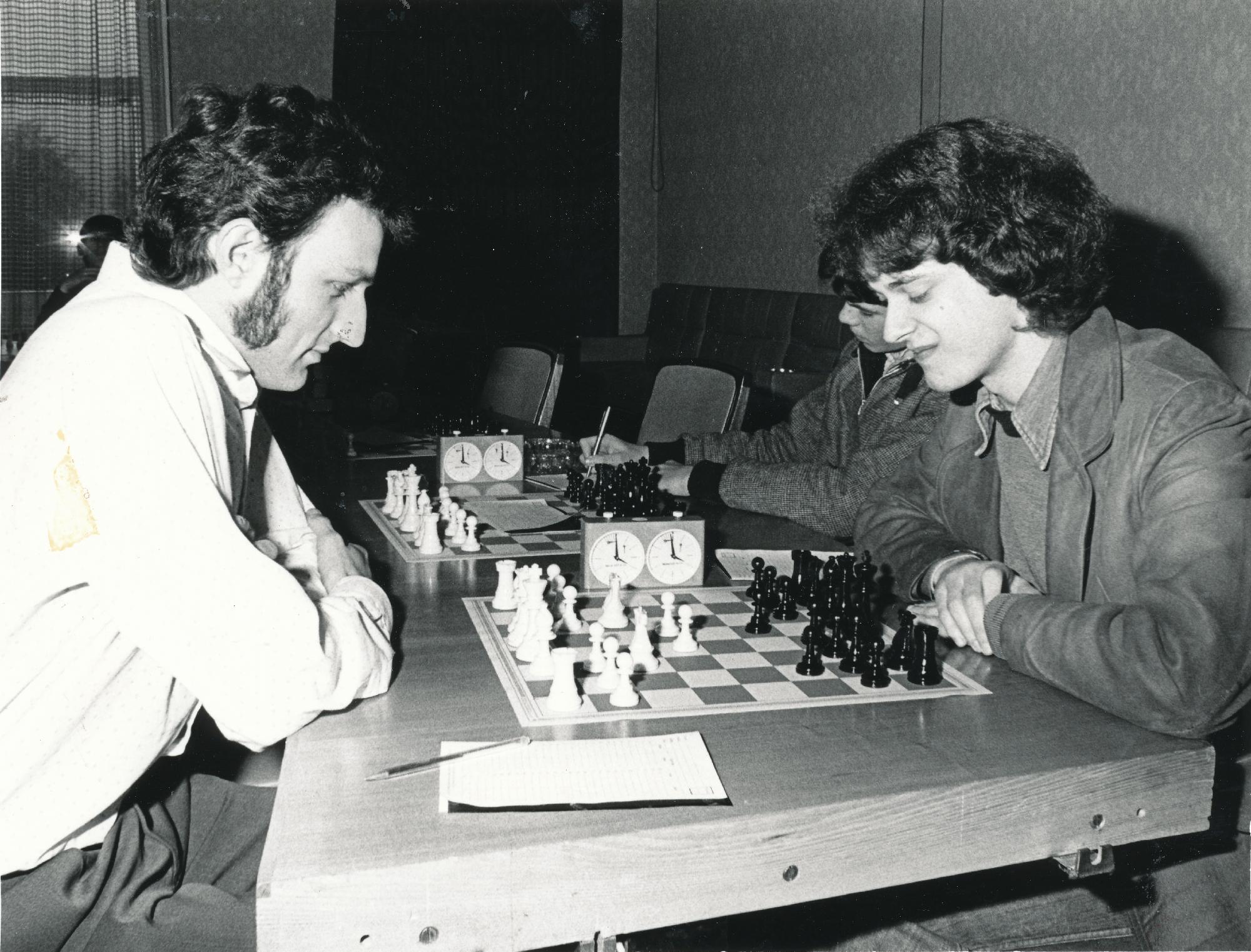
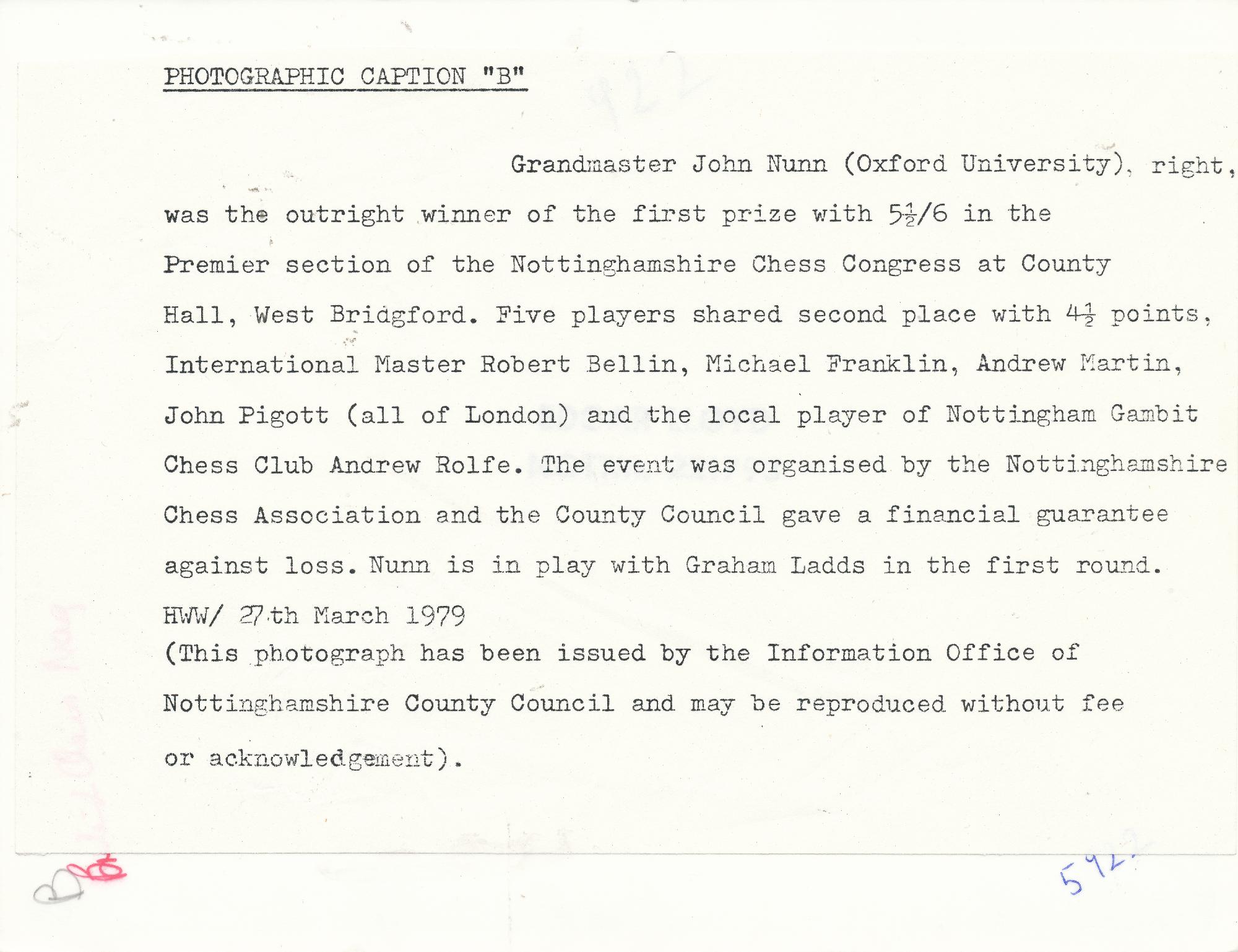
He came 6th in the Norwich Junior international tournament in 1970 and went up to Oxford University to take a mathematics degree at a very early age. He played on top board for the University from 1972-6 and is now preparing for a doctorate there.
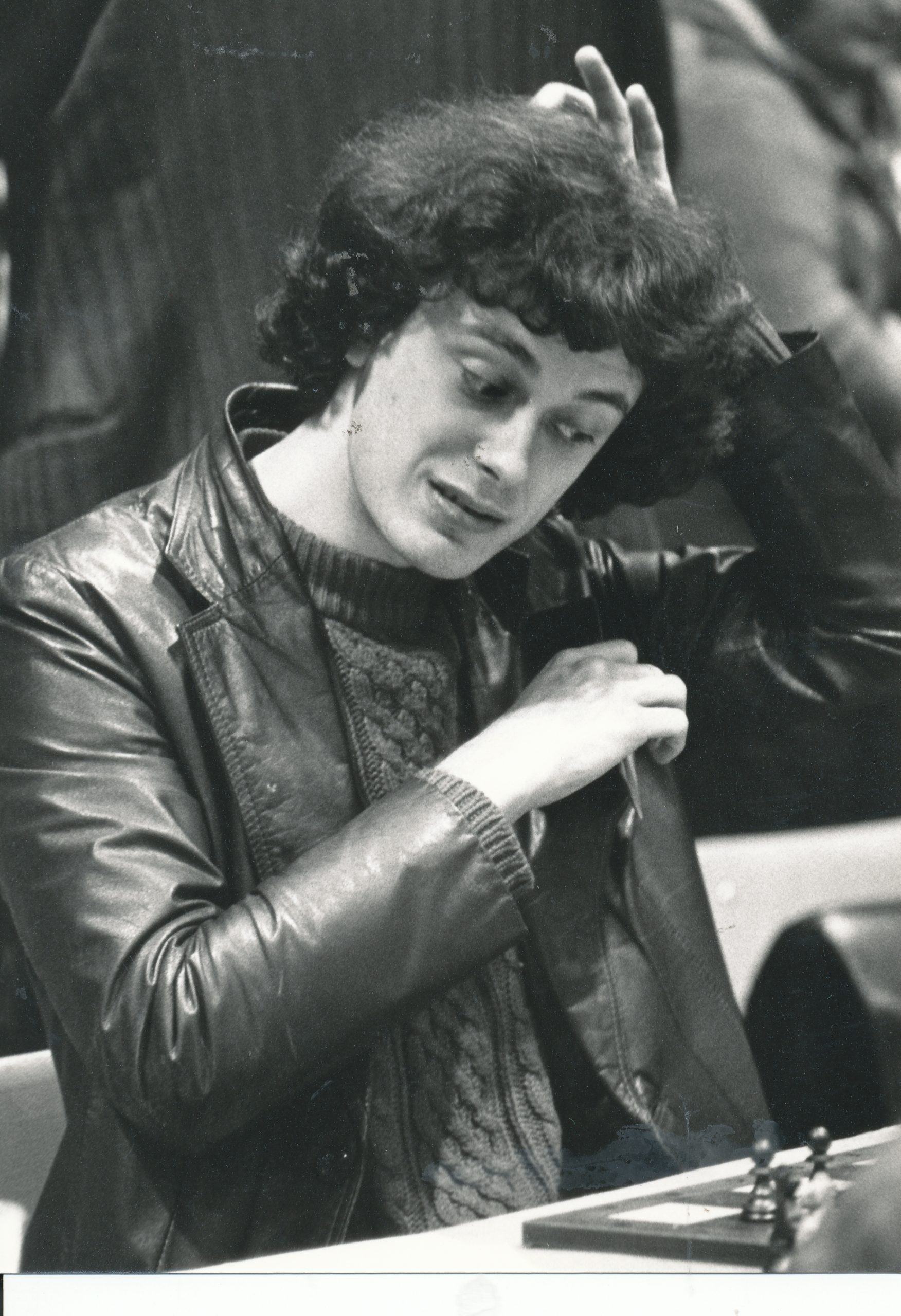
He won the European Junior Championship and with it the international master title in Groningen in 1975. In that year too he was equal first in the IBM Master tournament, and at London in 1975 he reached an international master norm coming 5th in the international tournament there. He played on bottom board at the Haifa Olympiad 1976 and scored 64.2%
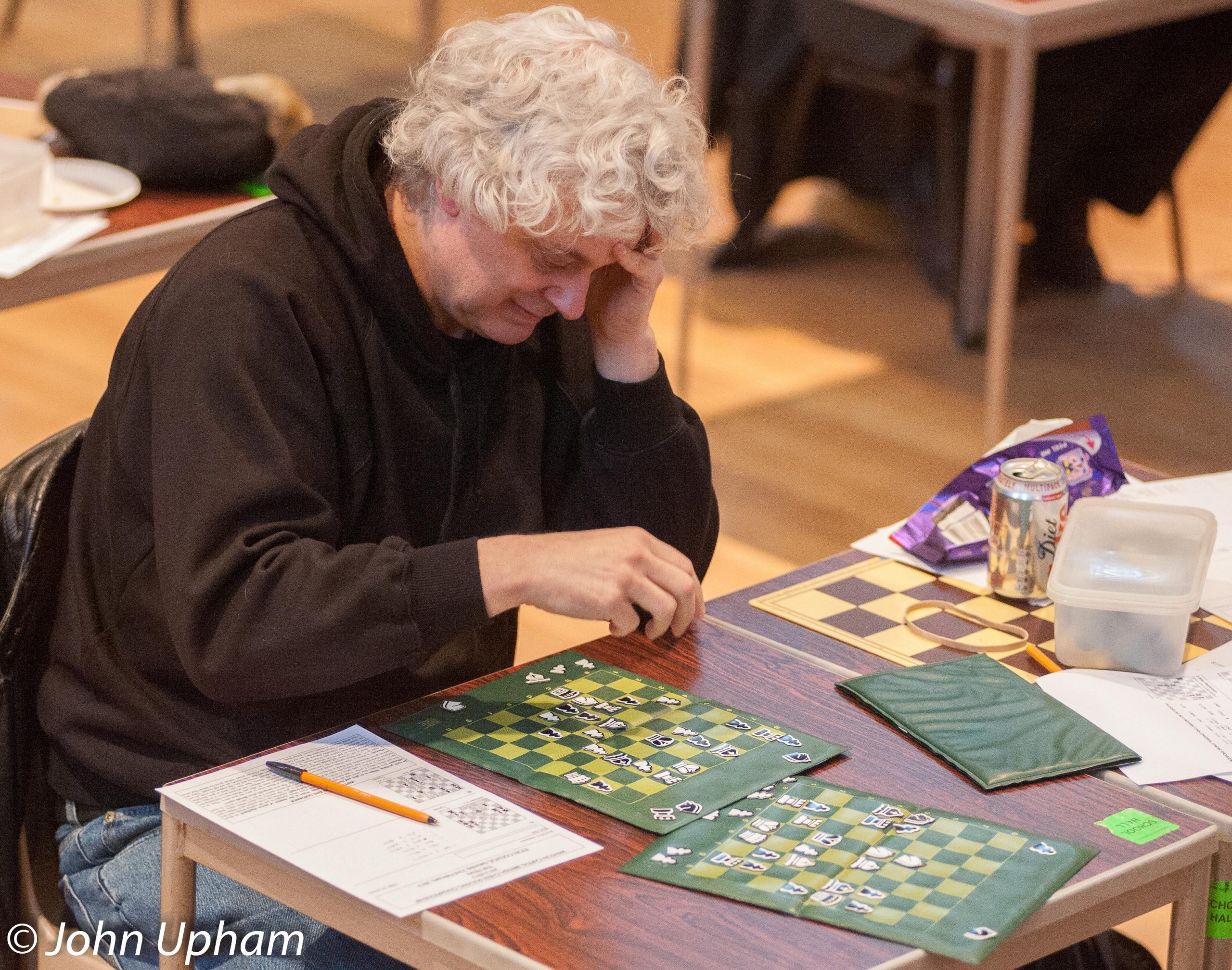
From The Oxford Companion to Chess by Hooper & Whyld :
English player. International Grandmaster (1978), British champion 1980. He went to Oxford at the unusually young age of 15, graduated in 1973. Gained his B.Sc. the following year and his
doctorate in 1978.
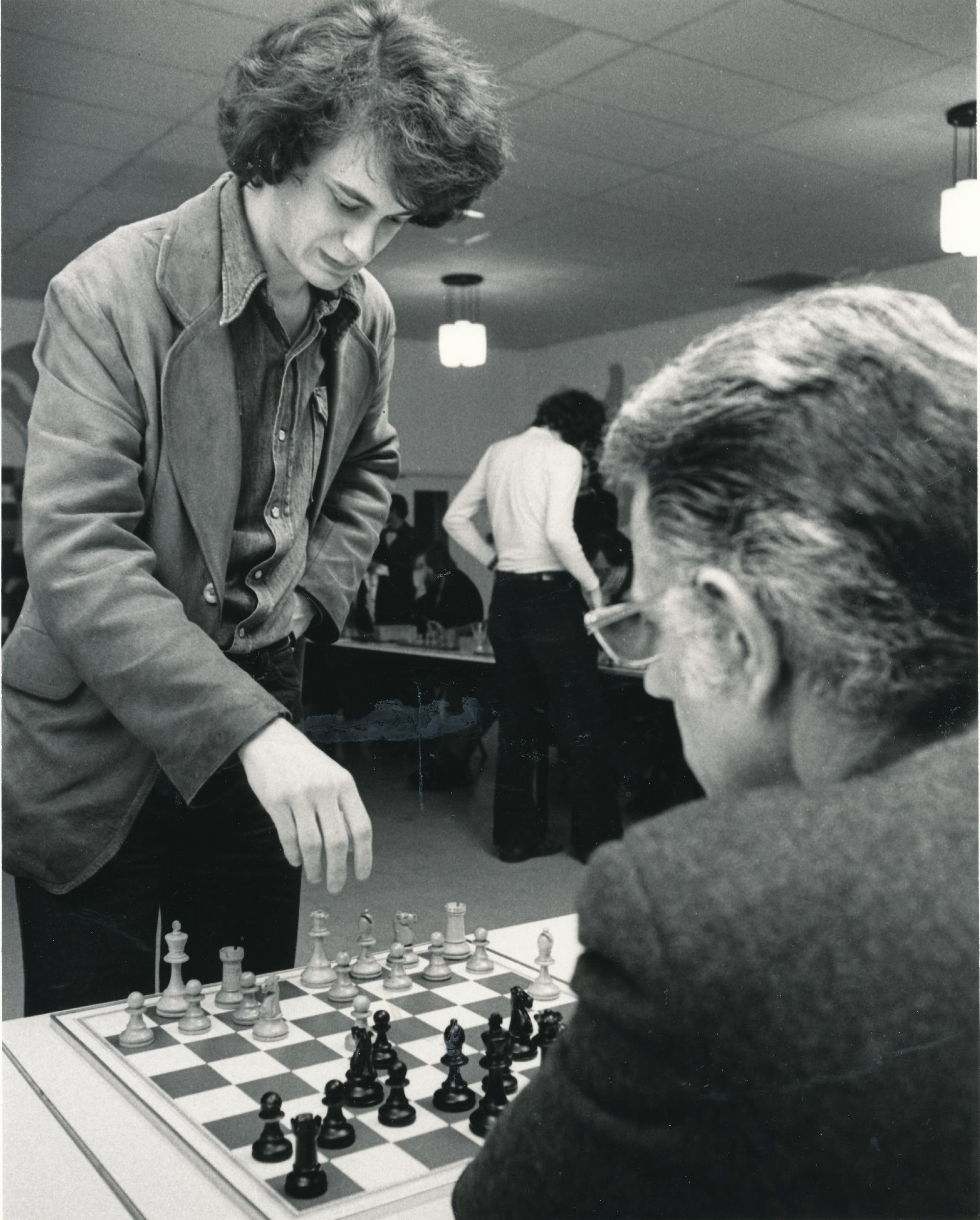
A Junior Research Fellow, he lectured in mathematics until 1981 when he became a professional player. By then he had already achieved several good results in international tournaments: Budapest 1978, first; Hastings 1979-80, first (4-5 = 10) equal with Andersson; Baden-bei-Wien 1980, category 12, third (+5=10) after Spassky and Belyavsky: Helsinki 1981, first (+5 = 6) equal with Matulovich; and Wiesbaden 1981, first (+6=3). In the category 12 Wijk aan Zee tournament 1982, Nunn came first ( + 5=7 — 1) equal with Balashov ahead of Tal, Hubner, and Timman and at Helsinki 1983 he came second (+5 = 6) after Karlsson.
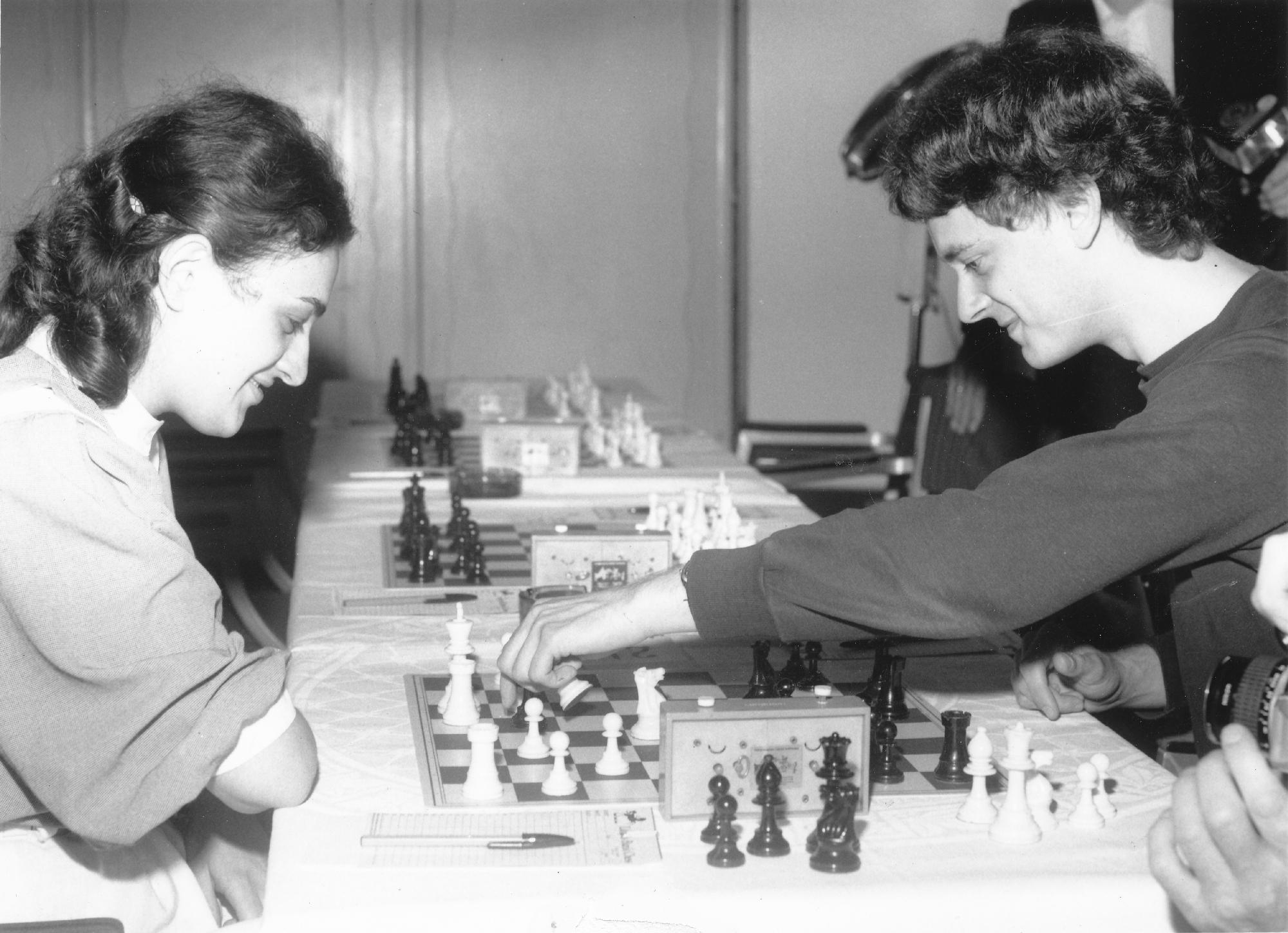
Possessing a remarkably quick sight of the board, Nunn is an expert solver: he made the second highest individual score in the world team solving championship, 1978, and won the solving championship of Great Britain in 1981.
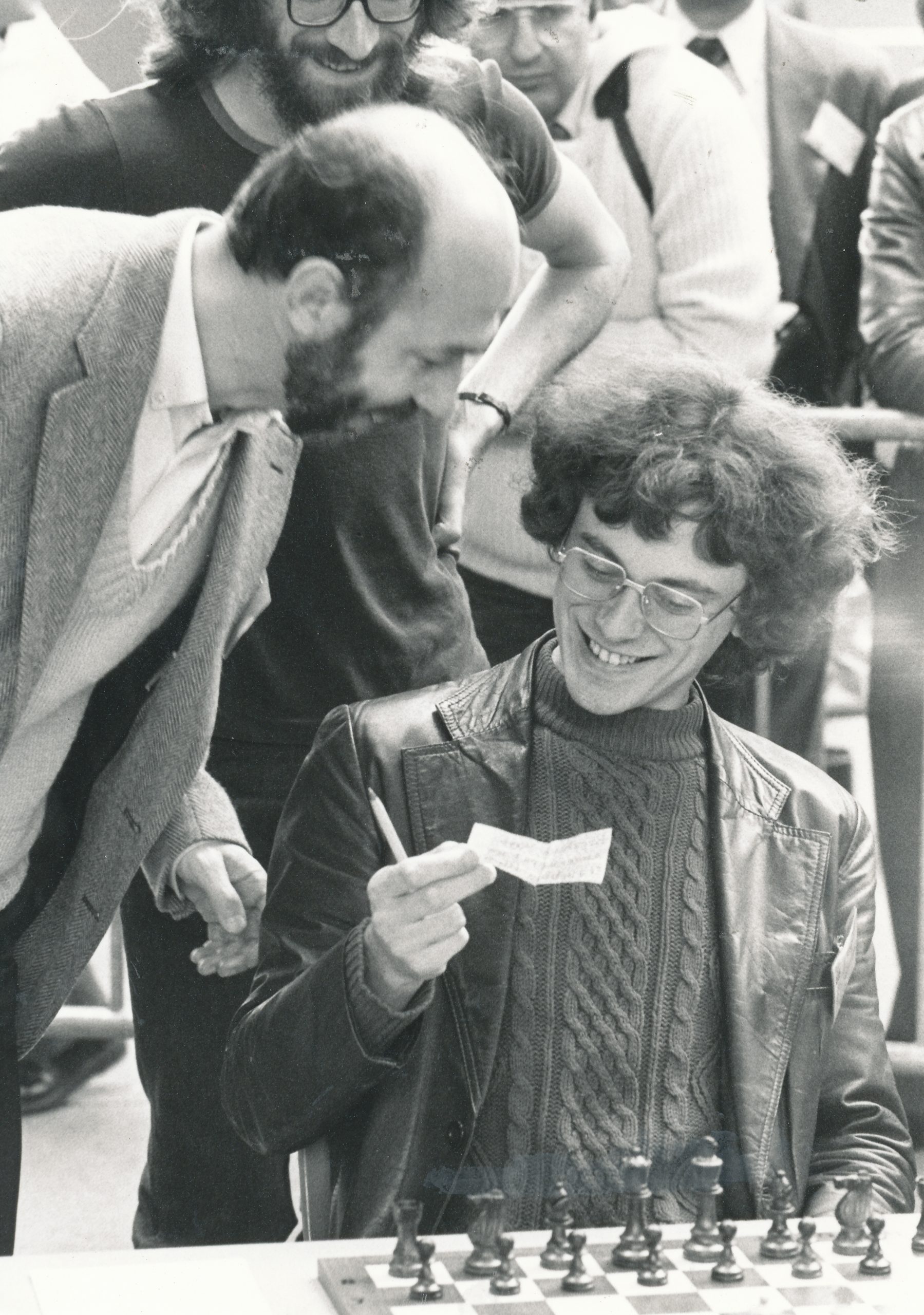
Here is an excellent article from ChessBase
Polugayevsky-Nunn European team championship :
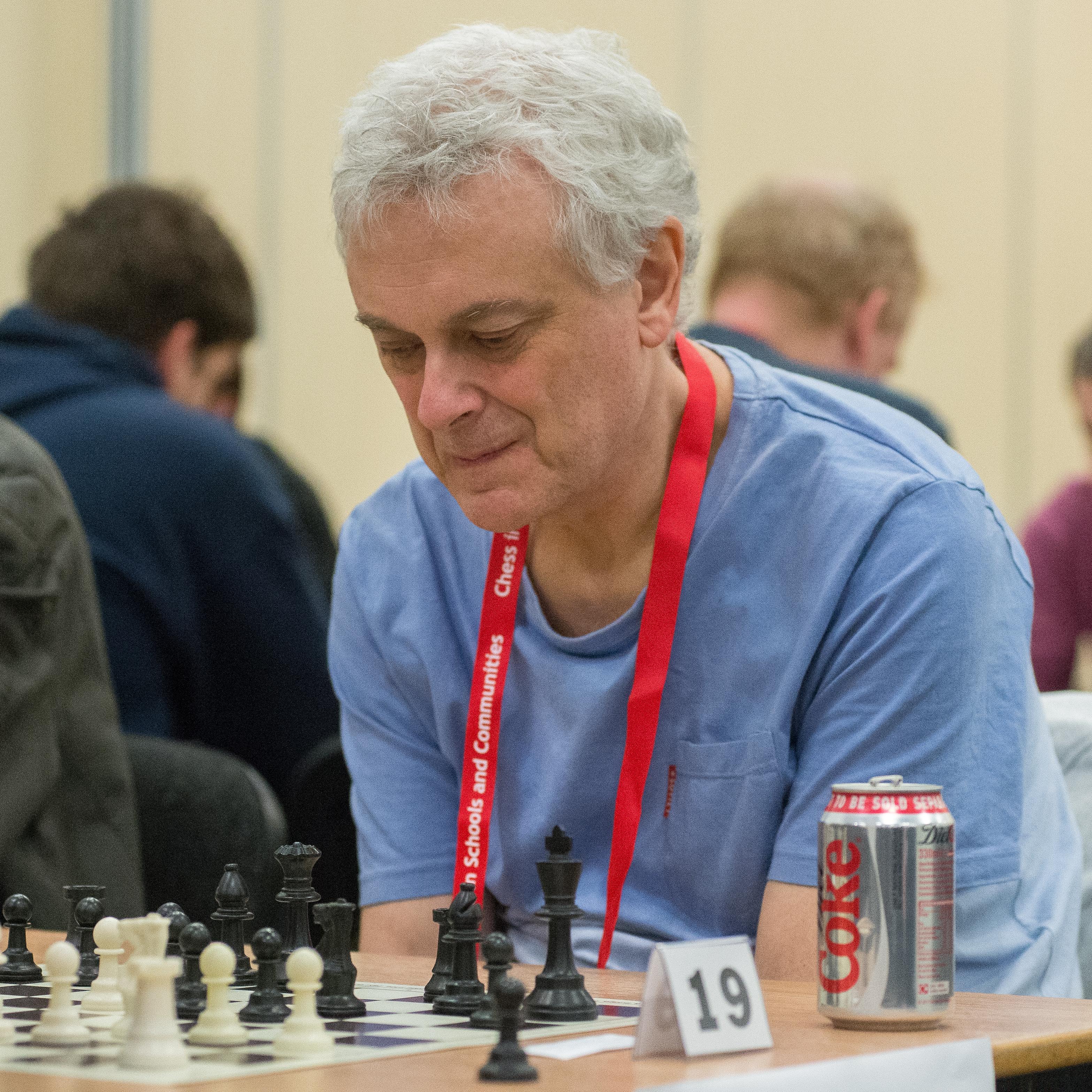
Here is his Wikipedia entry
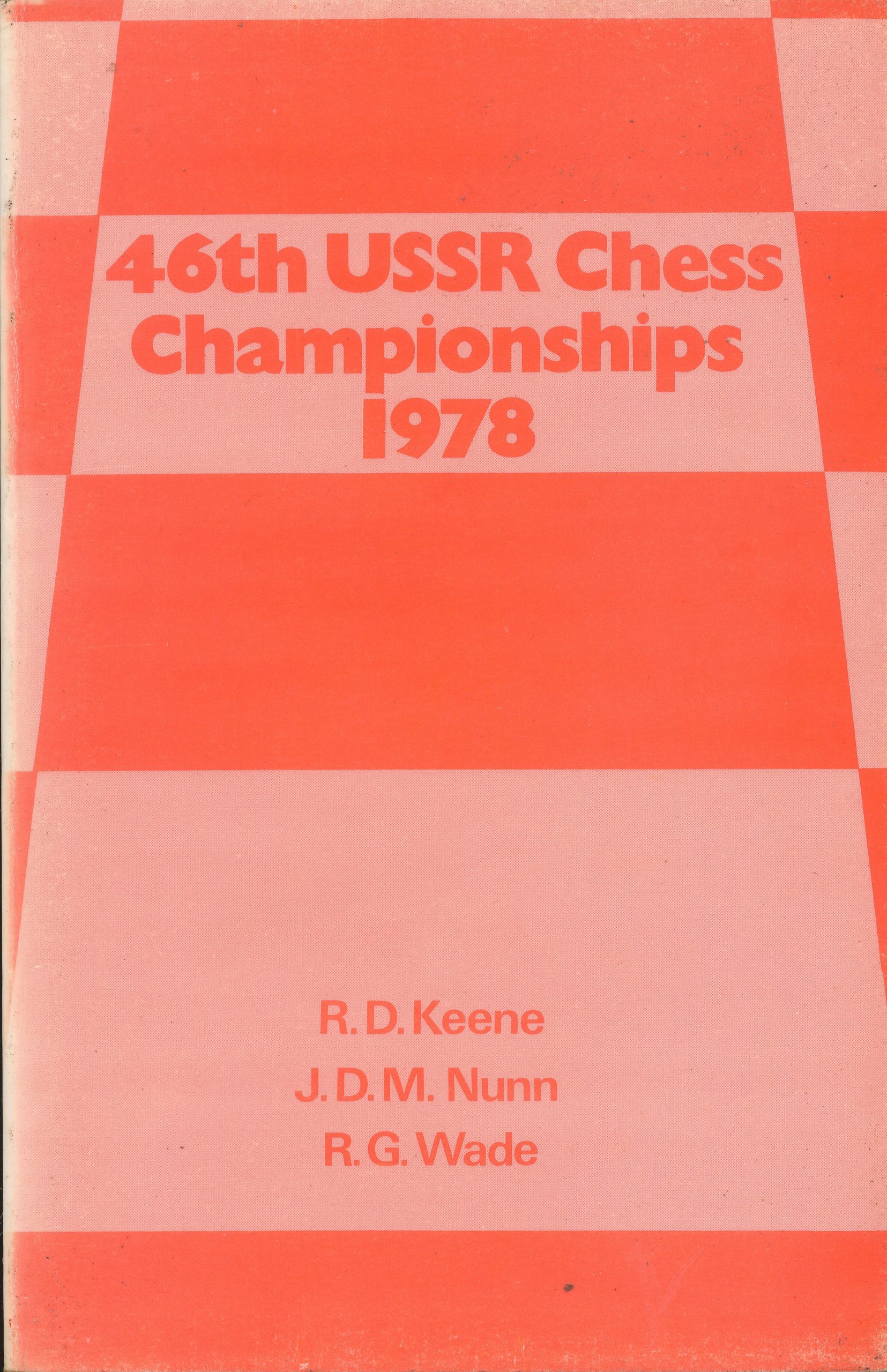
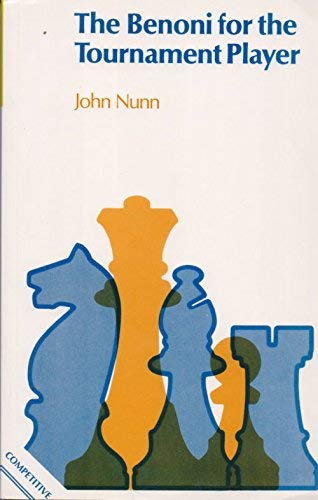
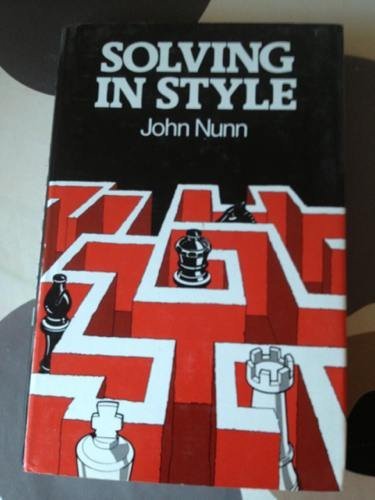
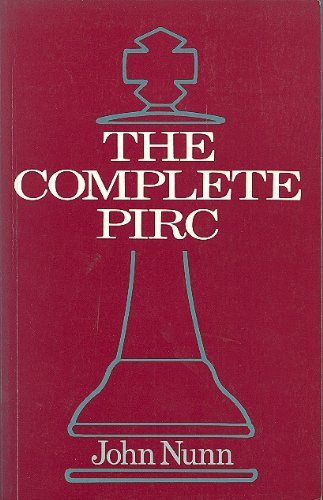
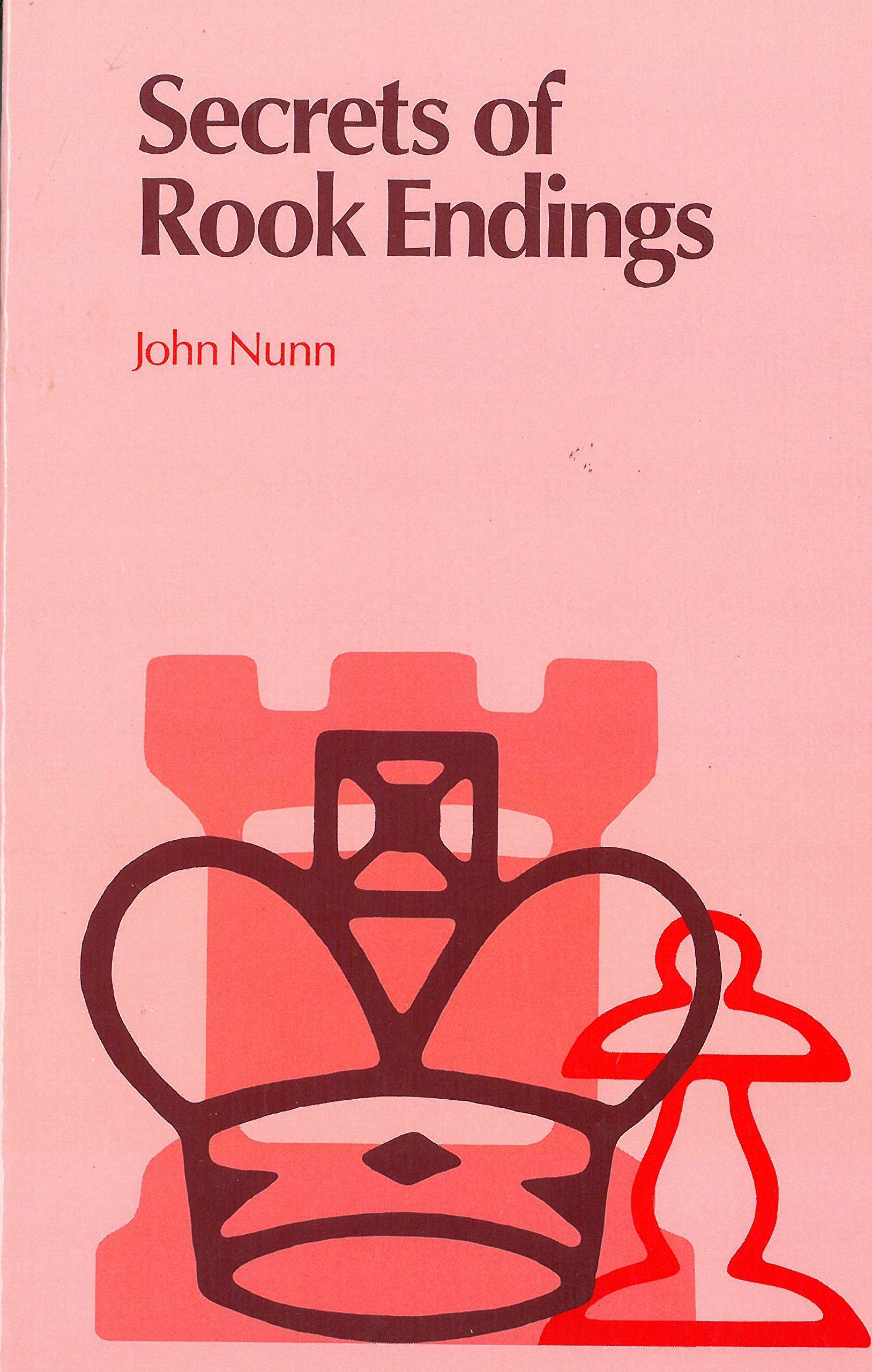
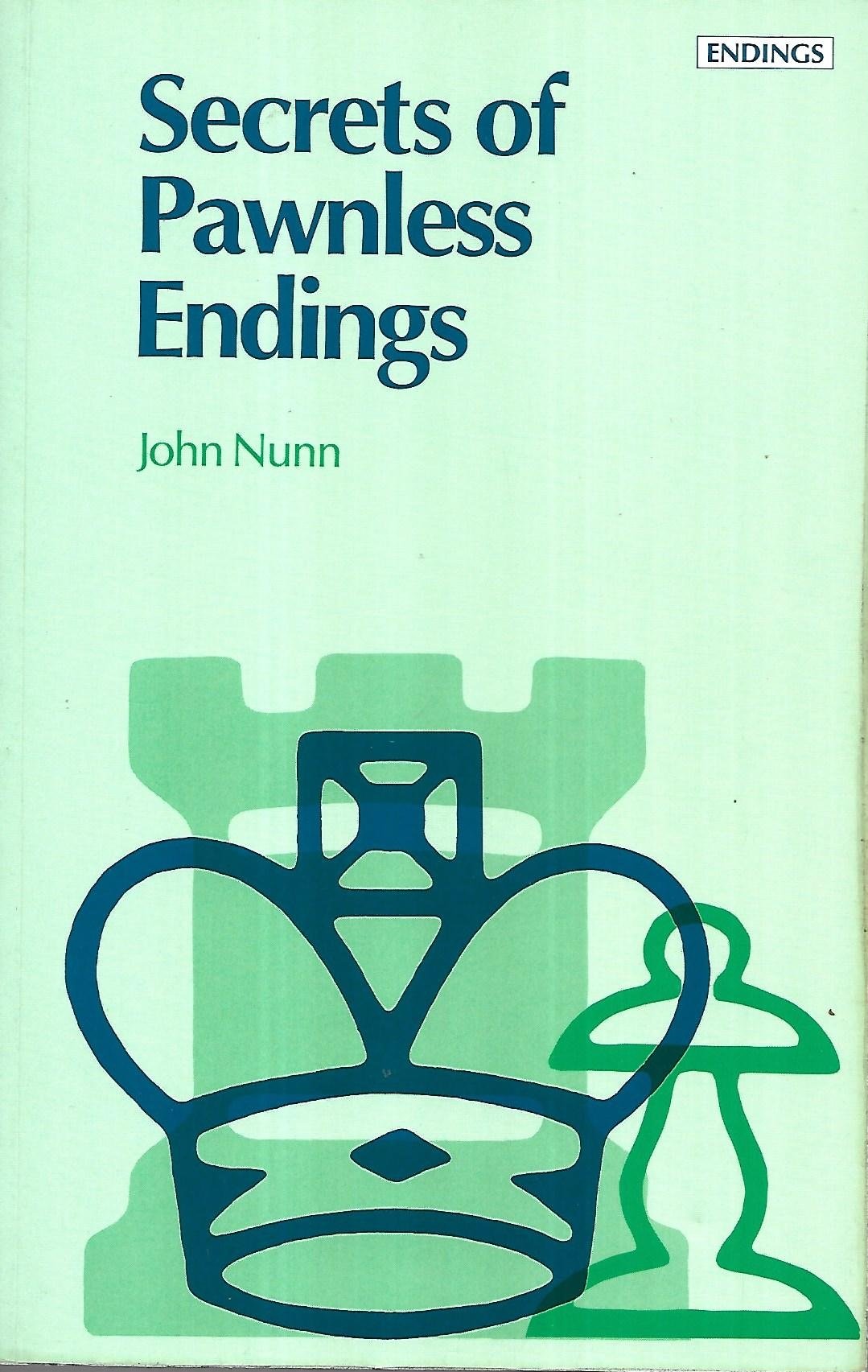
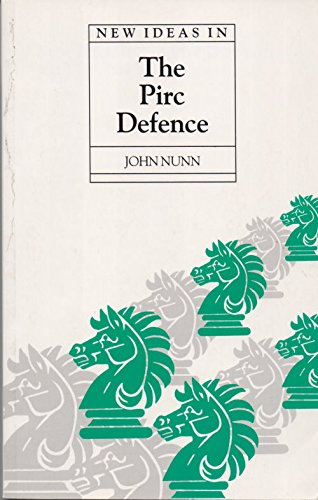
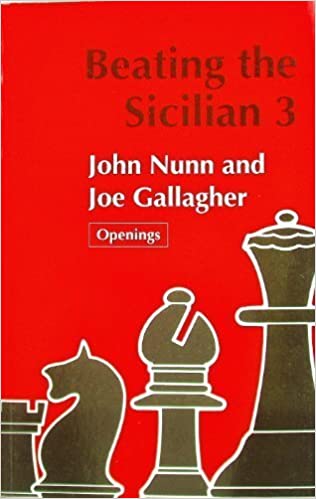

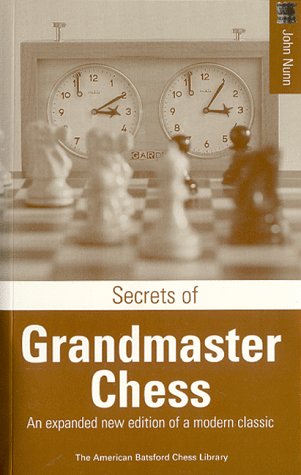
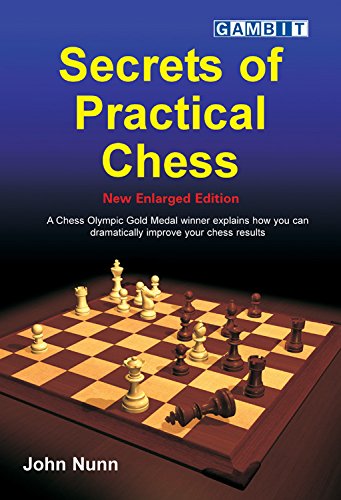
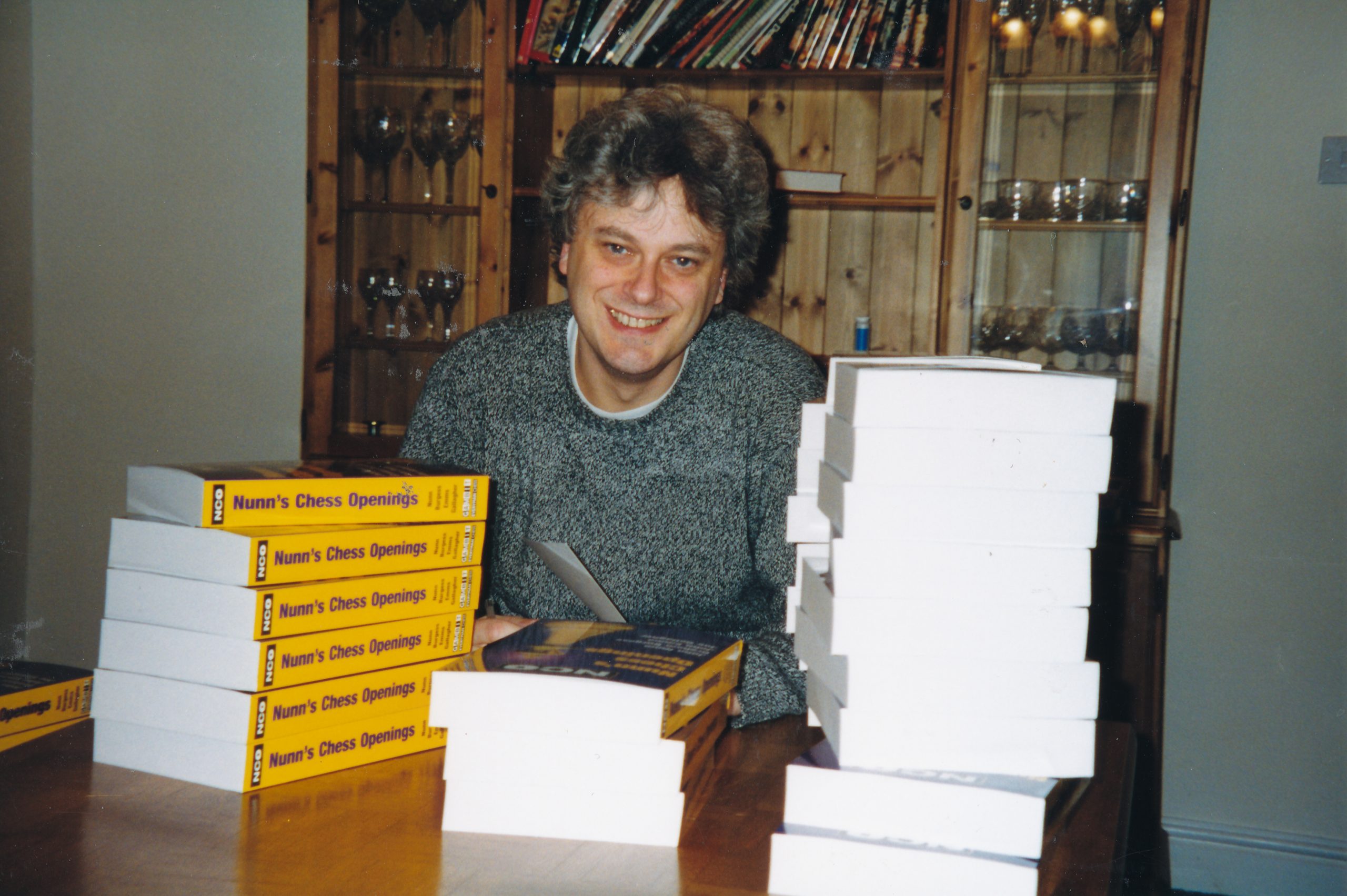

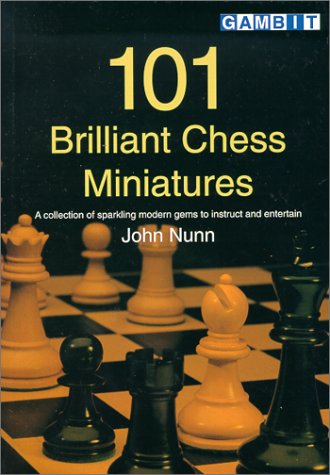
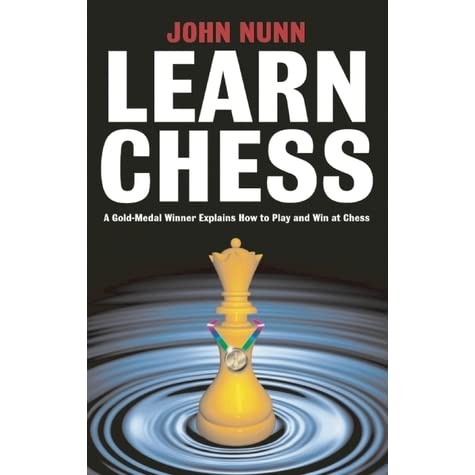
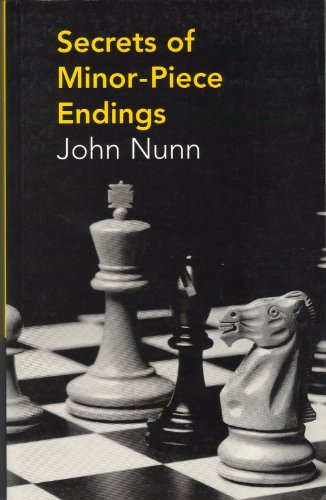
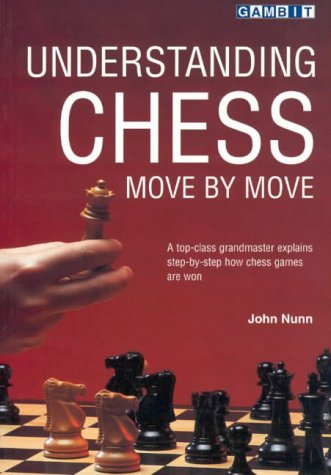
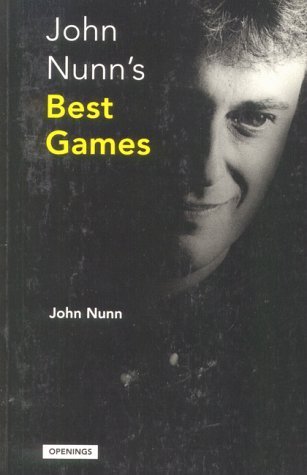
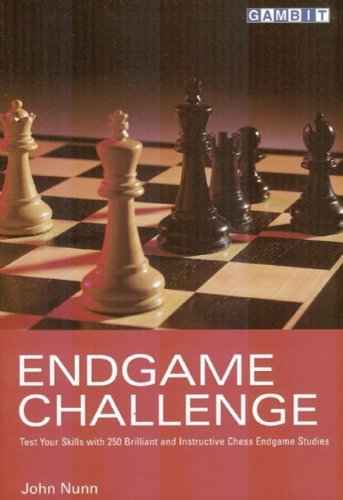
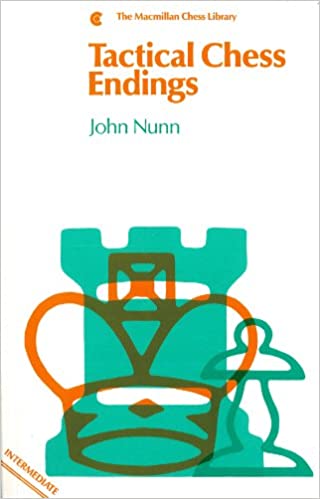
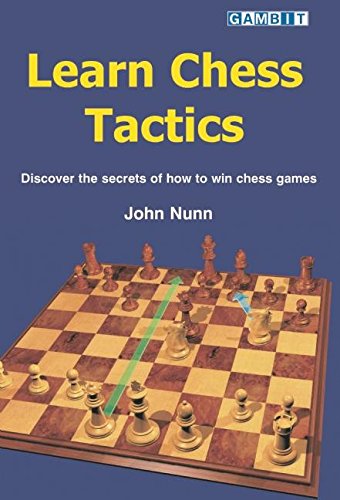
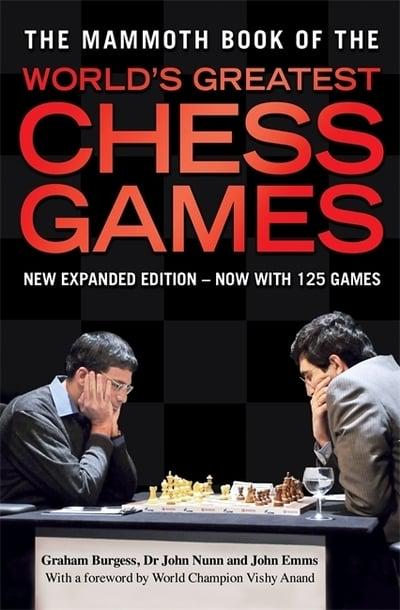
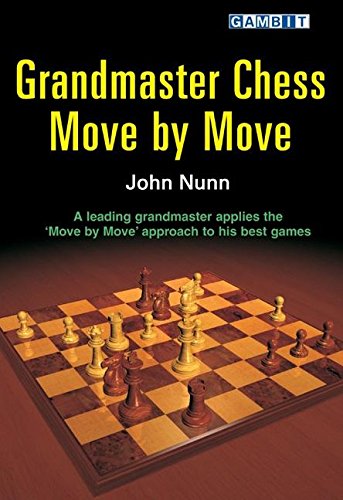
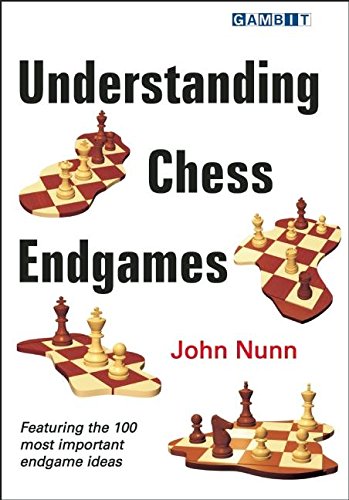
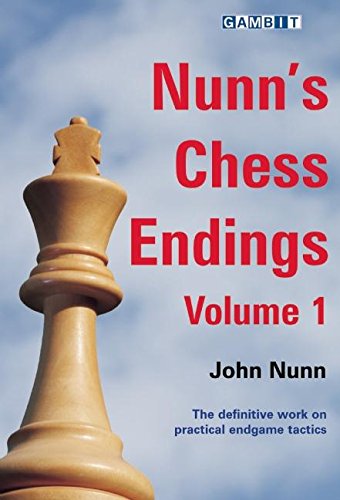
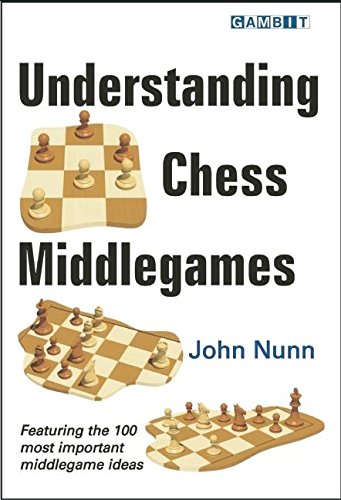
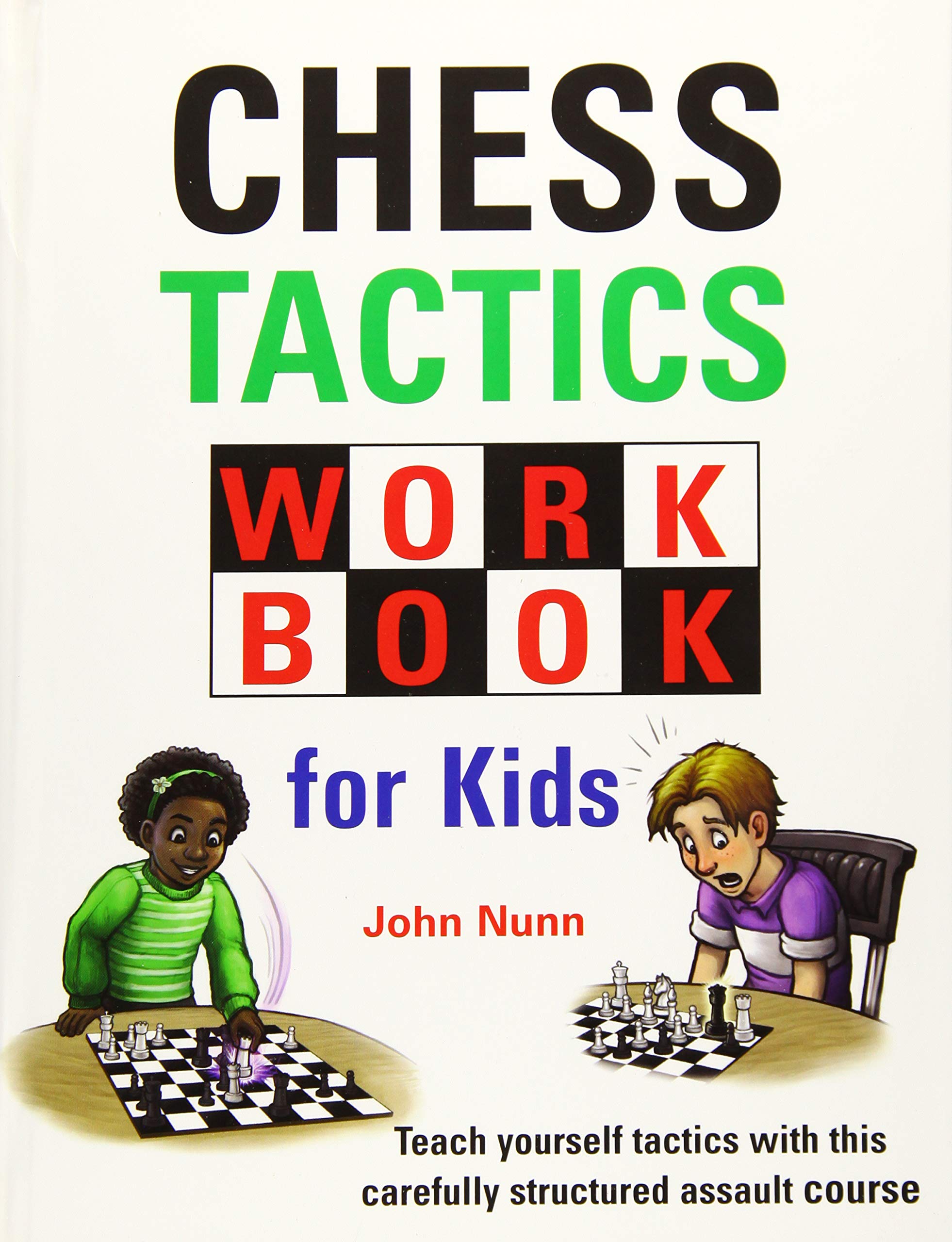
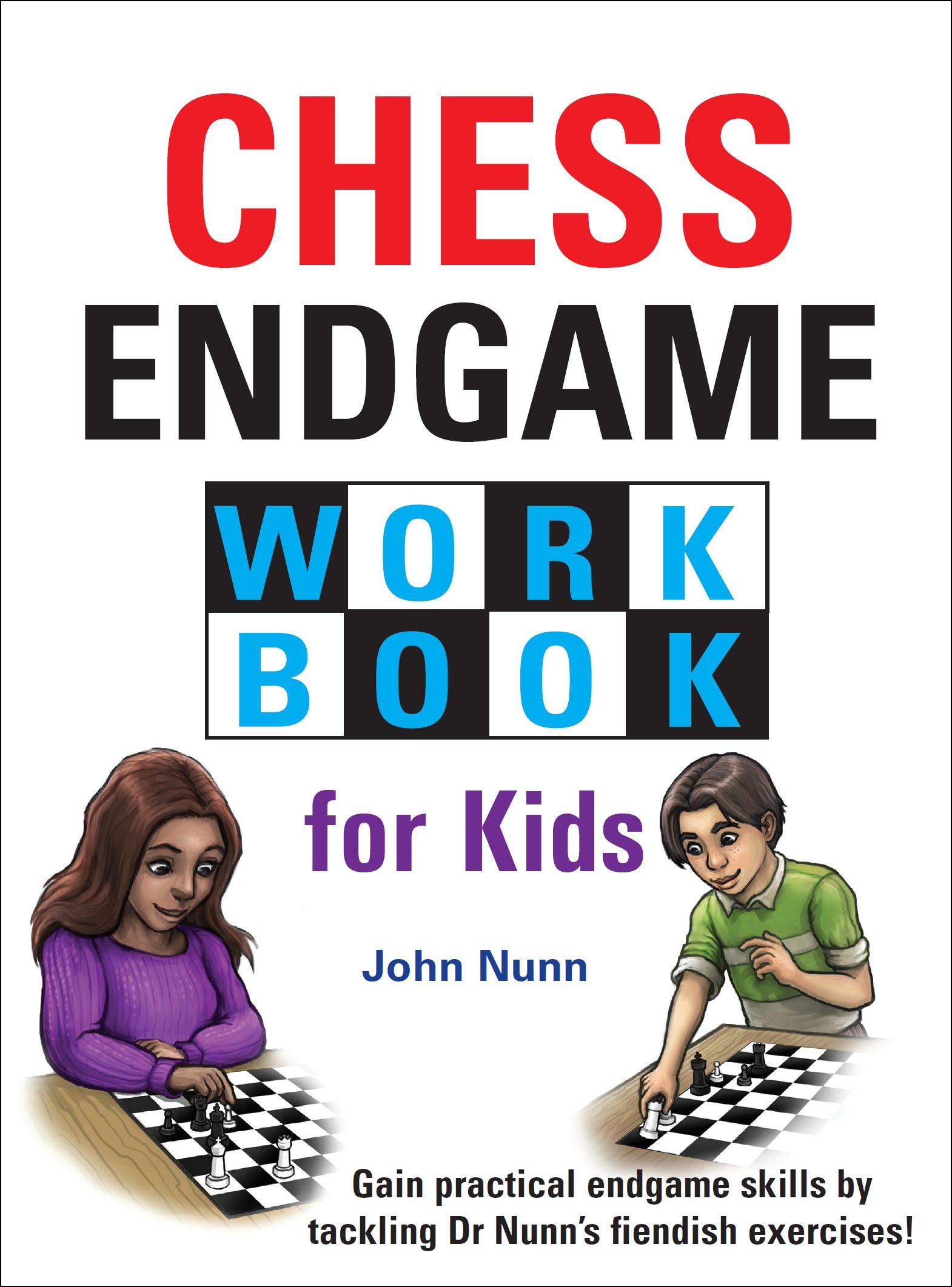
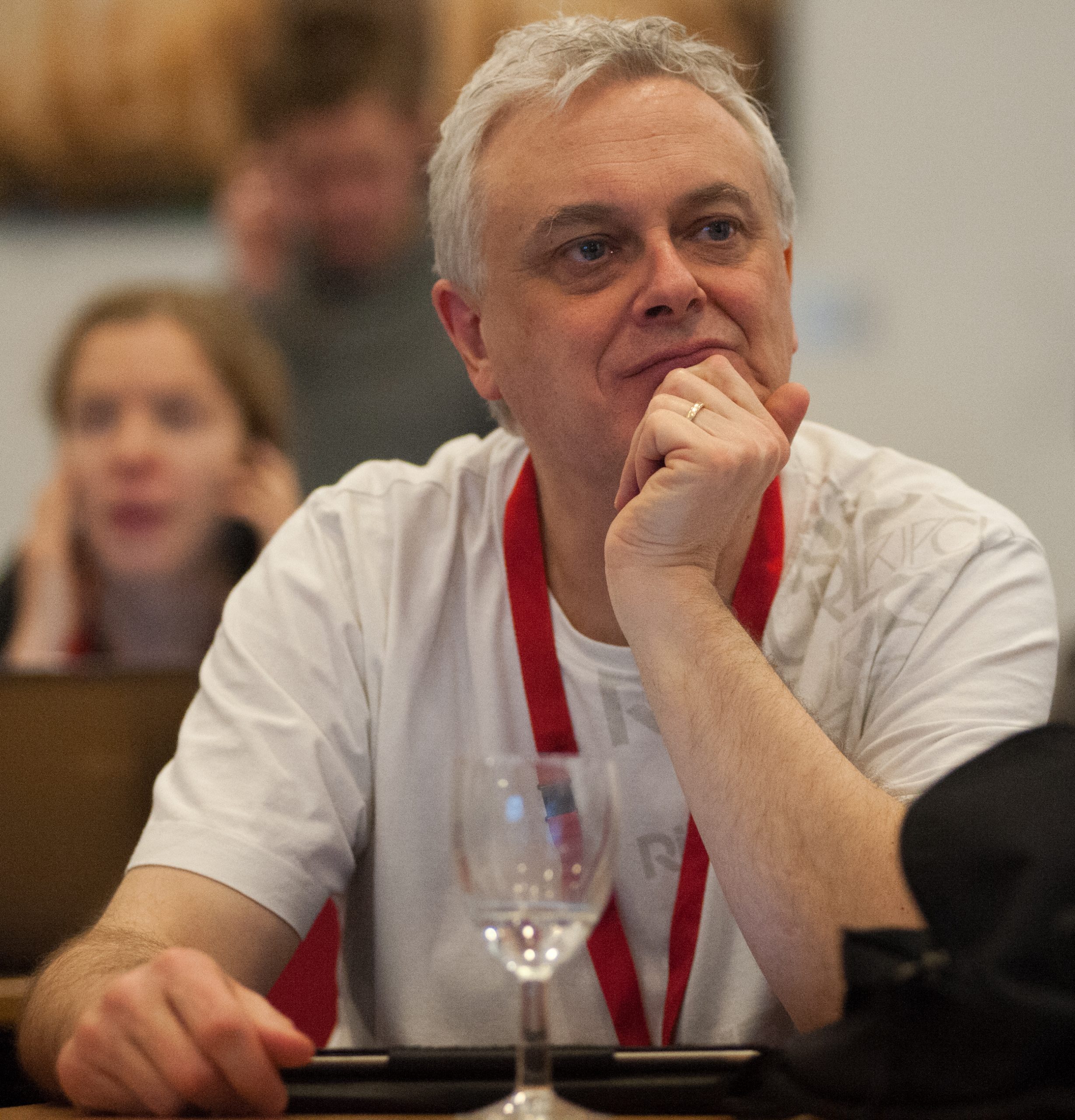
BCN wishes GM John Nunn Happy Birthday (25-iv-1955)
From The Encyclopaedia of Chess by Harry Golombek :
British International master and European Junior Champion, 1975. Born in London, Nunn learned chess at the age of four and soon revealed a great aptitude for the game.


He came 6th in the Norwich Junior international tournament in 1970 and went up to Oxford University to take a mathematics degree at a very early age. He played on top board for the University from 1972-6 and is now preparing for a doctorate there.

He won the European Junior Championship and with it the international master title in Groningen in 1975. In that year too he was equal first in the IBM Master tournament, and at London in 1975 he reached an international master norm coming 5th in the international tournament there. He played on bottom board at the Haifa Olympiad 1976 and scored 64.2%

From The Oxford Companion to Chess by Hooper & Whyld :
English player. International Grandmaster (1978), British champion 1980. He went to Oxford at the unusually young age of 15, graduated in 1973. Gained his B.Sc. the following year and his
doctorate in 1978.

A Junior Research Fellow, he lectured in mathematics until 1981 when he became a professional player. By then he had already achieved several good results in international tournaments: Budapest 1978, first; Hastings 1979-80, first (4-5 = 10) equal with Andersson; Baden-bei-Wien 1980, category 12, third (+5=10) after Spassky and Belyavsky: Helsinki 1981, first (+5 = 6) equal with Matulovich; and Wiesbaden 1981, first (+6=3). In the category 12 Wijk aan Zee tournament 1982, Nunn came first ( + 5=7 — 1) equal with Balashov ahead of Tal, Hubner, and Timman and at Helsinki 1983 he came second (+5 = 6) after Karlsson.

Possessing a remarkably quick sight of the board, Nunn is an expert solver: he made the second highest individual score in the world team solving championship, 1978, and won the solving championship of Great Britain in 1981.

Here is an excellent article from ChessBase
Polugayevsky-Nunn European team championship :

Here is his Wikipedia entry





























BCN wishes GM John Nunn Happy Birthday (25-iv-1955)
From The Encyclopaedia of Chess by Harry Golombek :
British International master and European Junior Champion, 1975. Born in London, Nunn learned chess at the age of four and soon revealed a great aptitude for the game.


He came 6th in the Norwich Junior international tournament in 1970 and went up to Oxford University to take a mathematics degree at a very early age. He played on top board for the University from 1972-6 and is now preparing for a doctorate there.

He won the European Junior Championship and with it the international master title in Groningen in 1975. In that year too he was equal first in the IBM Master tournament, and at London in 1975 he reached an international master norm coming 5th in the international tournament there. He played on bottom board at the Haifa Olympiad 1976 and scored 64.2%

From The Oxford Companion to Chess by Hooper & Whyld :
English player. International Grandmaster (1978), British champion 1980. He went to Oxford at the unusually young age of 15, graduated in 1973. Gained his B.Sc. the following year and his
doctorate in 1978.

A Junior Research Fellow, he lectured in mathematics until 1981 when he became a professional player. By then he had already achieved several good results in international tournaments: Budapest 1978, first; Hastings 1979-80, first (4-5 = 10) equal with Andersson; Baden-bei-Wien 1980, category 12, third (+5=10) after Spassky and Belyavsky: Helsinki 1981, first (+5 = 6) equal with Matulovich; and Wiesbaden 1981, first (+6=3). In the category 12 Wijk aan Zee tournament 1982, Nunn came first ( + 5=7 — 1) equal with Balashov ahead of Tal, Hubner, and Timman and at Helsinki 1983 he came second (+5 = 6) after Karlsson.

Possessing a remarkably quick sight of the board, Nunn is an expert solver: he made the second highest individual score in the world team solving championship, 1978, and won the solving championship of Great Britain in 1981.

Here is an excellent article from ChessBase
Polugayevsky-Nunn European team championship :

Here is his Wikipedia entry





























BCN wishes GM John Nunn Happy Birthday (25-iv-1955)
From The Encyclopaedia of Chess by Harry Golombek :
British International master and European Junior Champion, 1975. Born in London, Nunn learned chess at the age of four and soon revealed a great aptitude for the game.


He came 6th in the Norwich Junior international tournament in 1970 and went up to Oxford University to take a mathematics degree at a very early age. He played on top board for the University from 1972-6 and is now preparing for a doctorate there.

He won the European Junior Championship and with it the international master title in Groningen in 1975. In that year too he was equal first in the IBM Master tournament, and at London in 1975 he reached an international master norm coming 5th in the international tournament there. He played on bottom board at the Haifa Olympiad 1976 and scored 64.2%

From The Oxford Companion to Chess by Hooper & Whyld :
English player. International Grandmaster (1978), British champion 1980. He went to Oxford at the unusually young age of 15, graduated in 1973. Gained his B.Sc. the following year and his
doctorate in 1978.

A Junior Research Fellow, he lectured in mathematics until 1981 when he became a professional player. By then he had already achieved several good results in international tournaments: Budapest 1978, first; Hastings 1979-80, first (4-5 = 10) equal with Andersson; Baden-bei-Wien 1980, category 12, third (+5=10) after Spassky and Belyavsky: Helsinki 1981, first (+5 = 6) equal with Matulovich; and Wiesbaden 1981, first (+6=3). In the category 12 Wijk aan Zee tournament 1982, Nunn came first ( + 5=7 — 1) equal with Balashov ahead of Tal, Hubner, and Timman and at Helsinki 1983 he came second (+5 = 6) after Karlsson.

Possessing a remarkably quick sight of the board, Nunn is an expert solver: he made the second highest individual score in the world team solving championship, 1978, and won the solving championship of Great Britain in 1981.

Here is an excellent article from ChessBase
Polugayevsky-Nunn European team championship :

Here is his Wikipedia entry




























